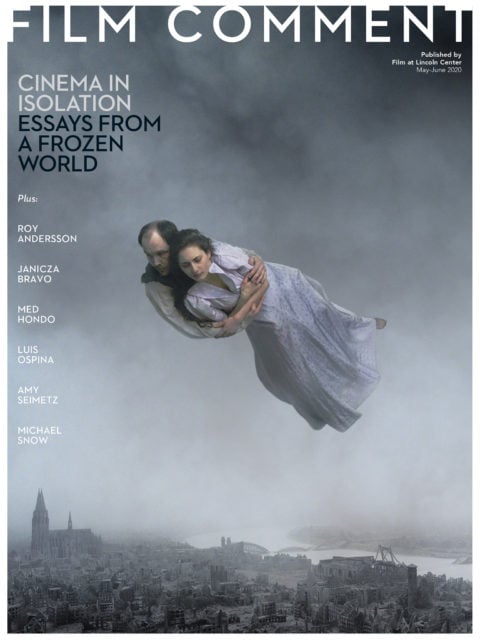
Next Door
The real subject of this column at a moment of zero theatrical releases could be “all of them,” but in the interest of space, I’ll focus on a single movie that definitely was not slated for a run that we know of. Premiered at the Berlin Film Festival and then programmed in New Directors/New Films, Alex Piperno’s debut feature, Window Boy Would Also Like to Have a Submarine, is both humble and far-reaching in its casually fantastical conceit.

The premise feels liberating in our current world where free movement can be a matter of life and death. In Piperno’s globalized fairy tale, a window-cleaning worker (nonprofessional Daniel Quiroga) on a cruise ship finds that a belowdecks door opens, Narnia-style, not onto an engine room, but into a modest apartment in Montevideo, Uruguay. The young man (the “Window Boy” of the title) is already prone to taking regular naps on the job, which seem less out of exhaustion than a dimly perceived spiritual ache, and so this classically dreamlike development in his routine becomes a welcome escape and source of curiosity. Feeling displaced in the unfamiliar surroundings of the ship—which cossets passengers but looks profoundly alienating to him—he settles into the shelter of this home away from home, right alongside its (surprisingly patient) resident.
The flip side to this low-key adventure takes place in the Philippine countryside, where a group of men have stumbled across a concrete hut. It’s a baffling eruption on a hill in the jungle and the source of much debate. If Window Boy’s scenario has the gentle air of a comic-strip fantasia—the taciturn guy might as well have thought bubbles, and in fact the Uruguayan-born Piperno cites Greg Fiering’s ’90s comic “Migraine Boy” as title inspiration—the Filipino villagers’ understandable aggravation could easily plug into a globalization critique, but the film doesn’t lean into this. (Something about the cruise ship on the other end of things reminded me of the Marx Brothers and the crowded stateroom scene in A Night at the Opera, leavening the film with a ready hint of absurdity.) The hut, soon the target of hurled objects, is another portal that more broadly can be a promise or a threat, creating the possibility for encounters and disasters for which neither side is prepared.
In contrast to our era’s presiding text on interconnectedness, The Human Surge, Piperno chooses a largely fixed camera and squared-off compositions, which turn out to underline first the confinement of rooms and then, conversely, the spiraling outward that mise en abyme can produce. An unexpected tenderness arises out of Window Boy’s visits to the apartment, where he seems like a child who has wandered into his parents’ bedroom to sleep. The title is drawn from a poem the director wrote, and its playfulness leaves its imprint on the film even when all can seem lost.
Nicolas Rapold is the editor-in-chief of Film Comment and hosts The Film Comment Podcast.







